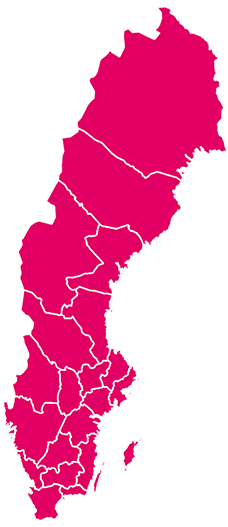Treatment
Combination treatment (braking medication) has been available for people with HIV in Sweden since 1996. Combination therapy involves taking several different medications at the same time. The treatment does not cure the infection but is so effective a person living with HIV can live as long as anyone. The amount of HIV virus in the blood can become so low that it is no longer measurable, but it does not disappear from the body. Treated HIV is not transmitted through sex
There is no conclusion as to what the best combination is. It is the doctors’ task to find the combination that best suits each patient. The antiviral drugs available today are divided into four groups; Nucleoside analog-RT inhibitors (NRTIs), Non-nucleoside analog-RT inhibitors (NNRTIs), Protease inhibitors (PI), and Fusion inhibitors (FI). Which group the drug belongs to depends on where in the virus production the drug does its job. For example, some drugs attack the virus when it tries to enter the cell, some prevent new viruses from maturing, and so on.
Some of the medications used can cause side effects. Some side effects may disappear after a few weeks, while others may last longer. It is important that the patient carefully follows the doctor’s instructions in order for the effect to remain and for the virus not to develop resistance to the drugs. According to Swedish infection prevention legislation, the medications are free of charge for the individual patient.

